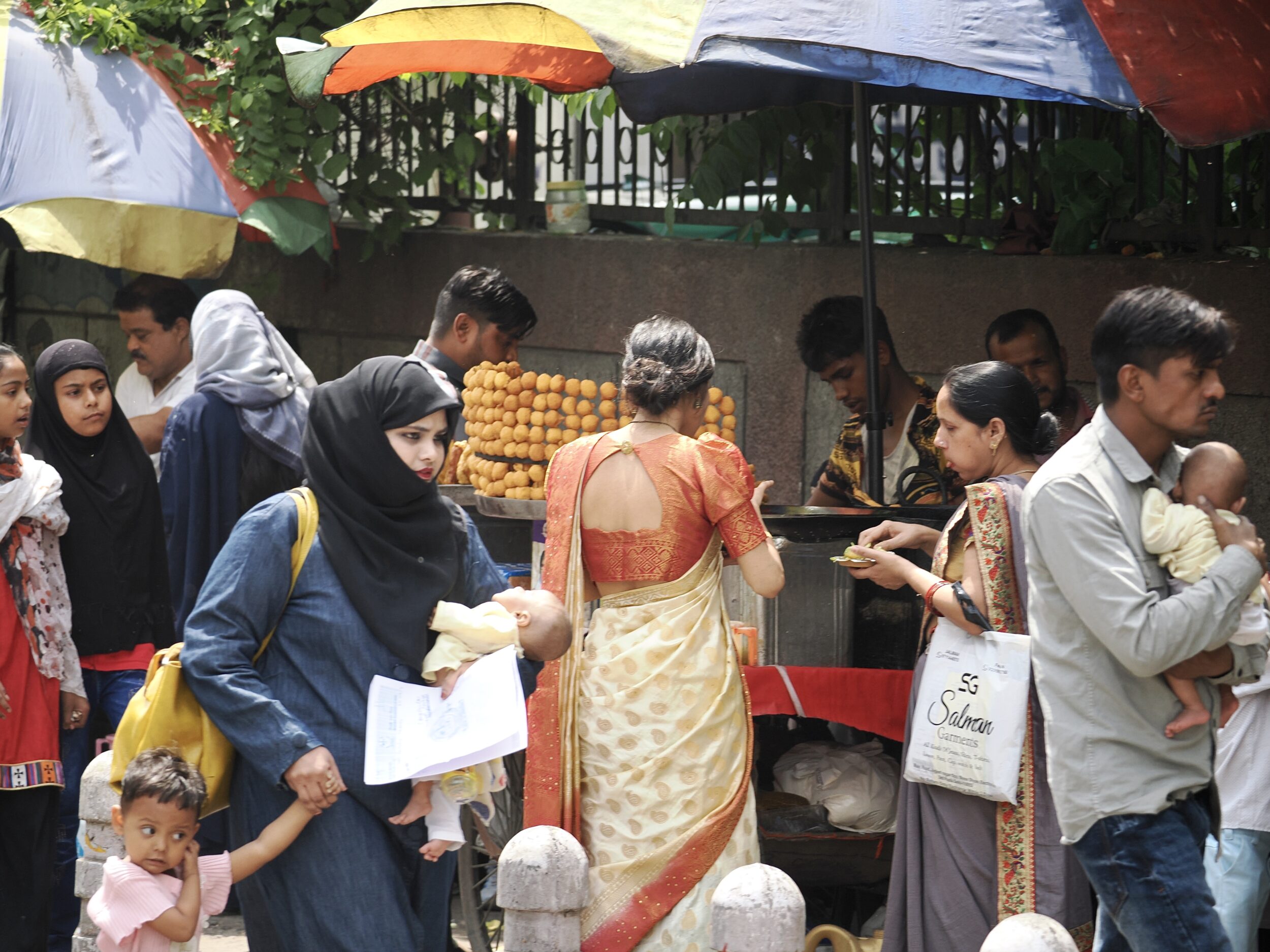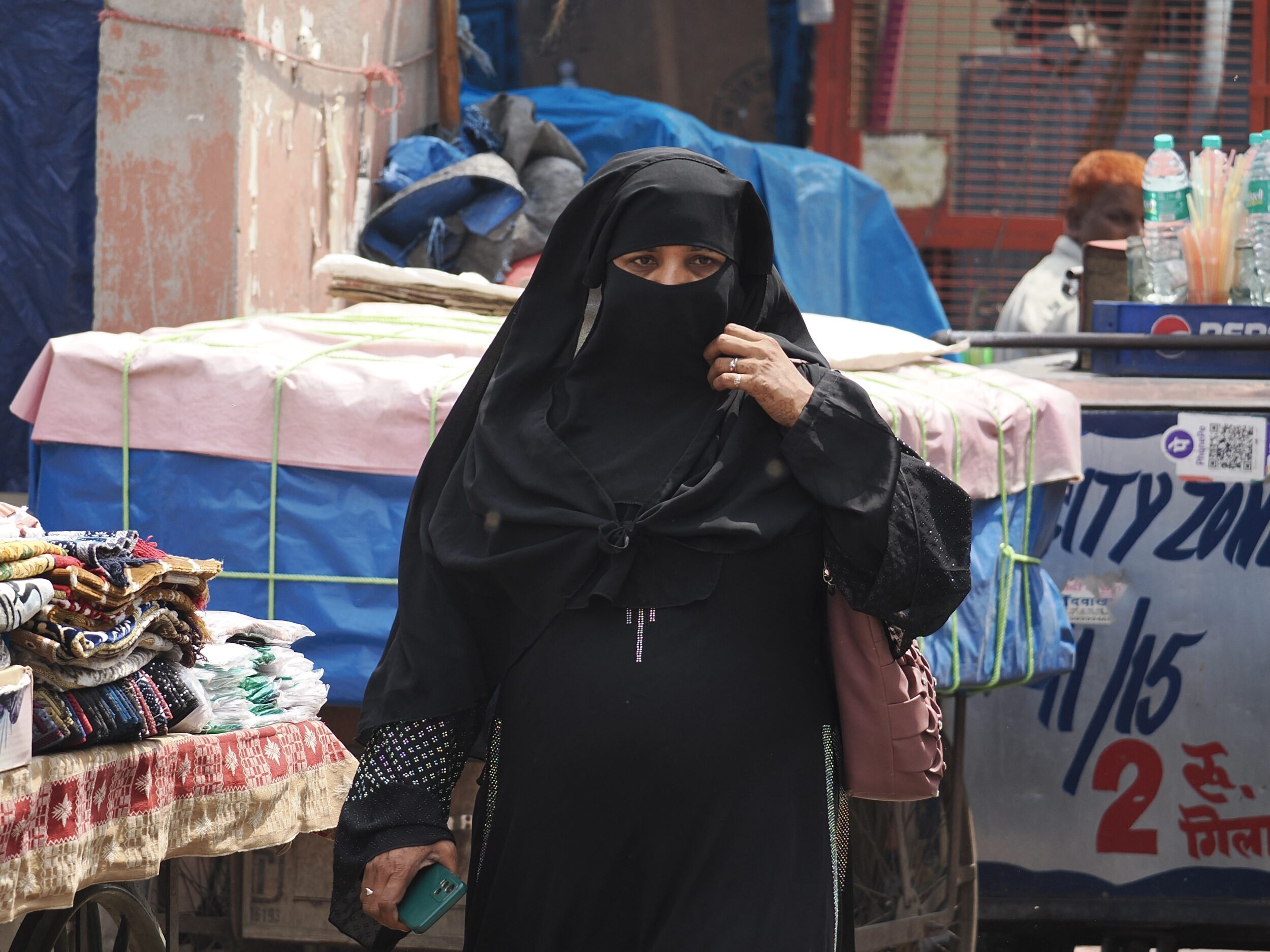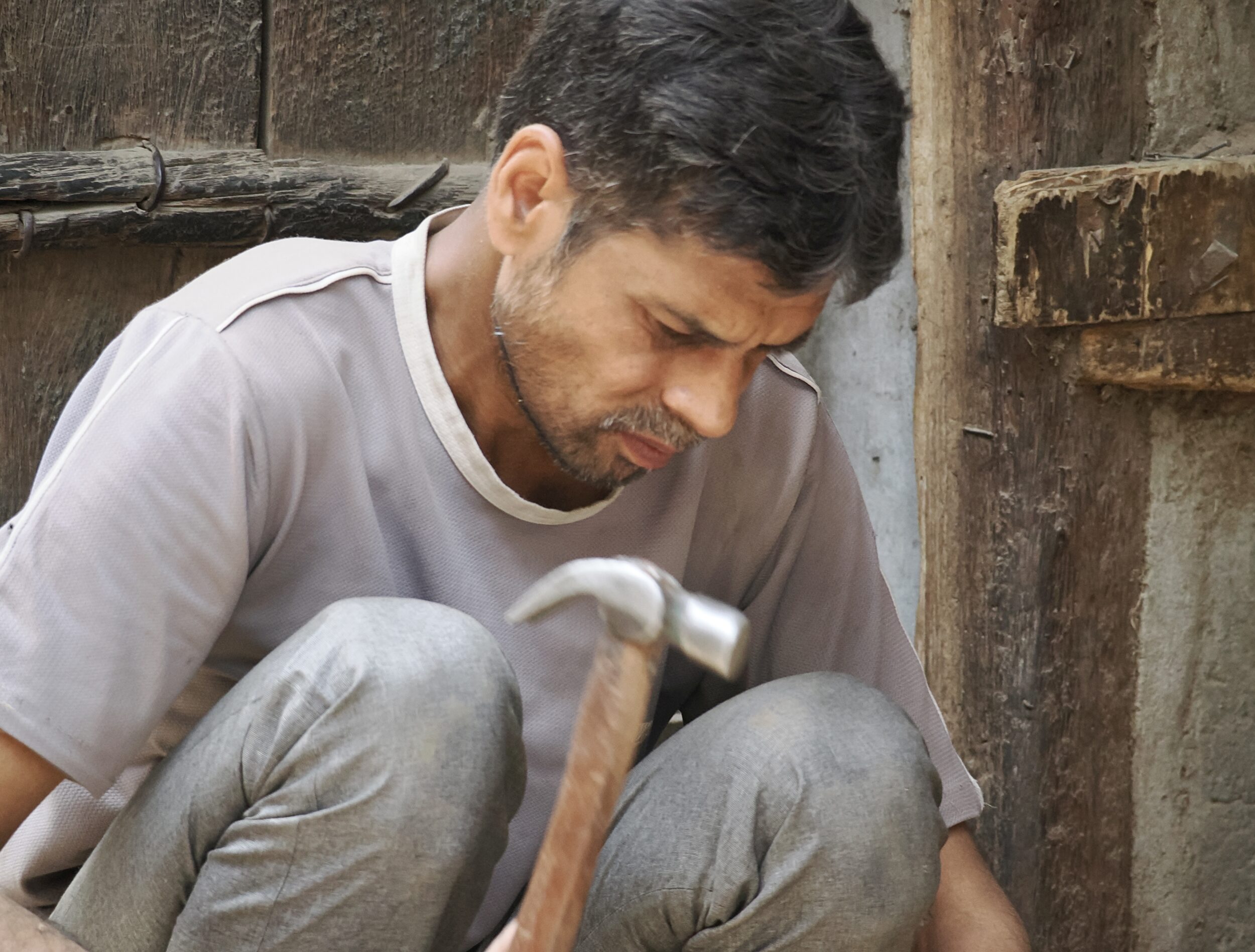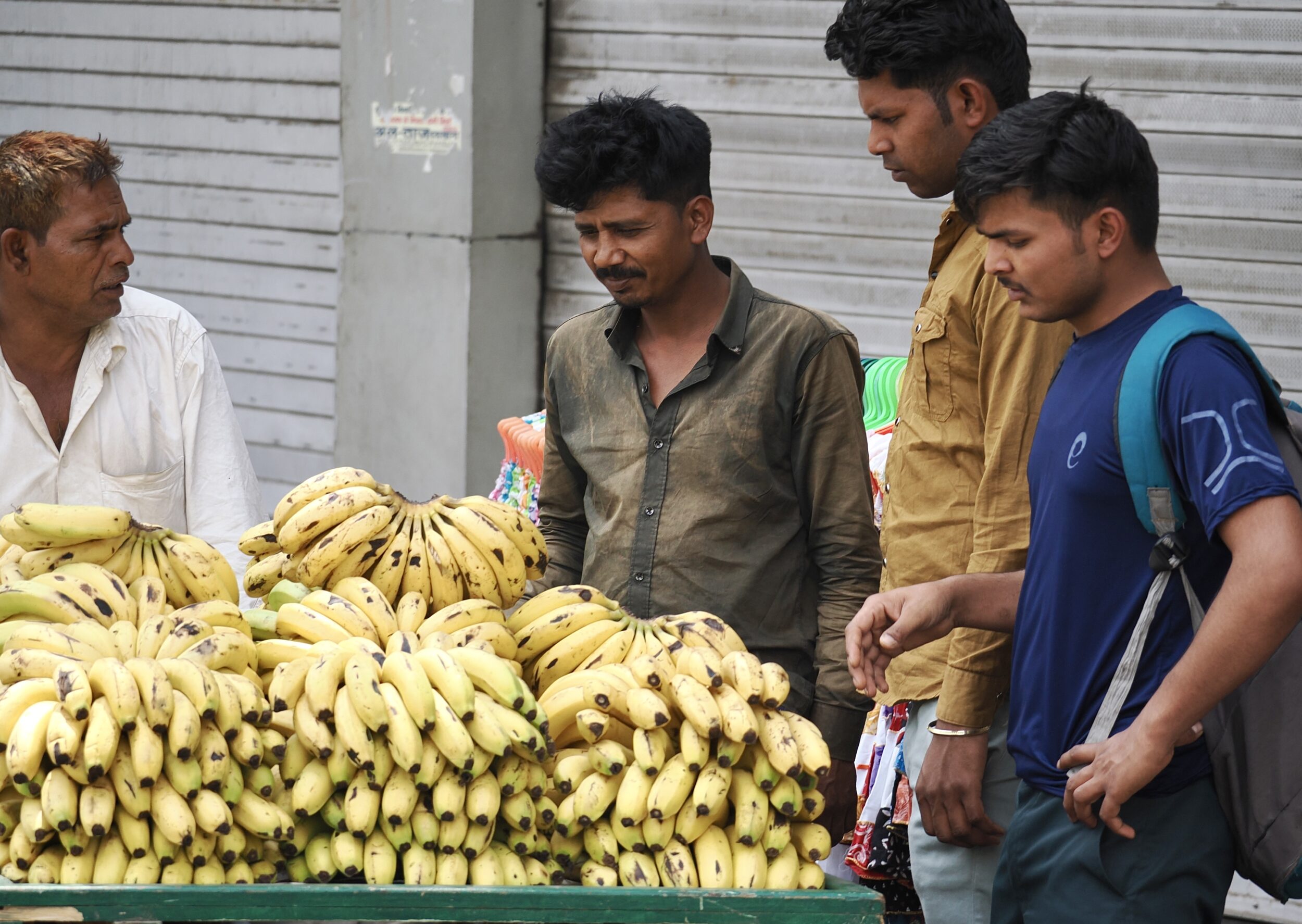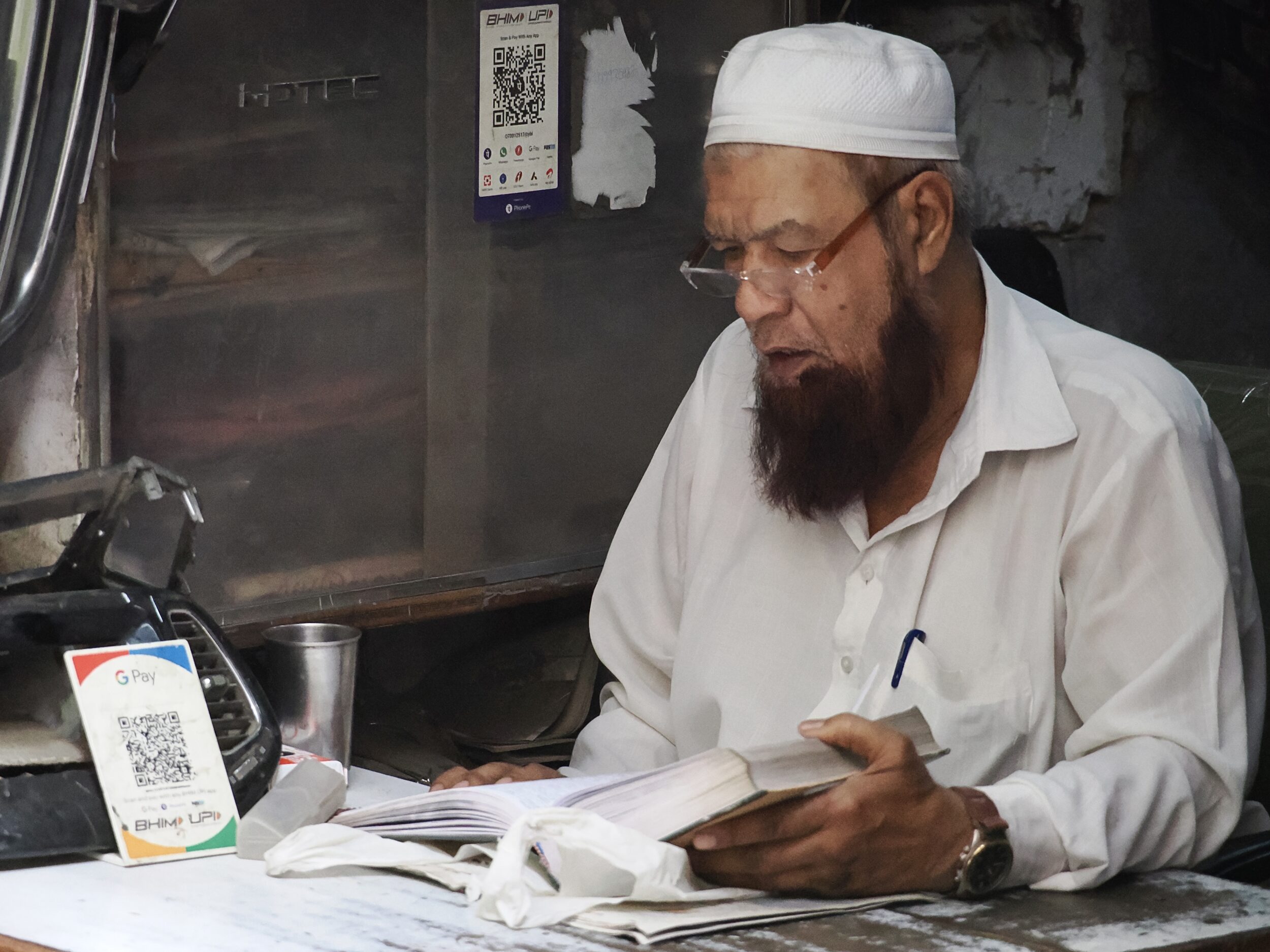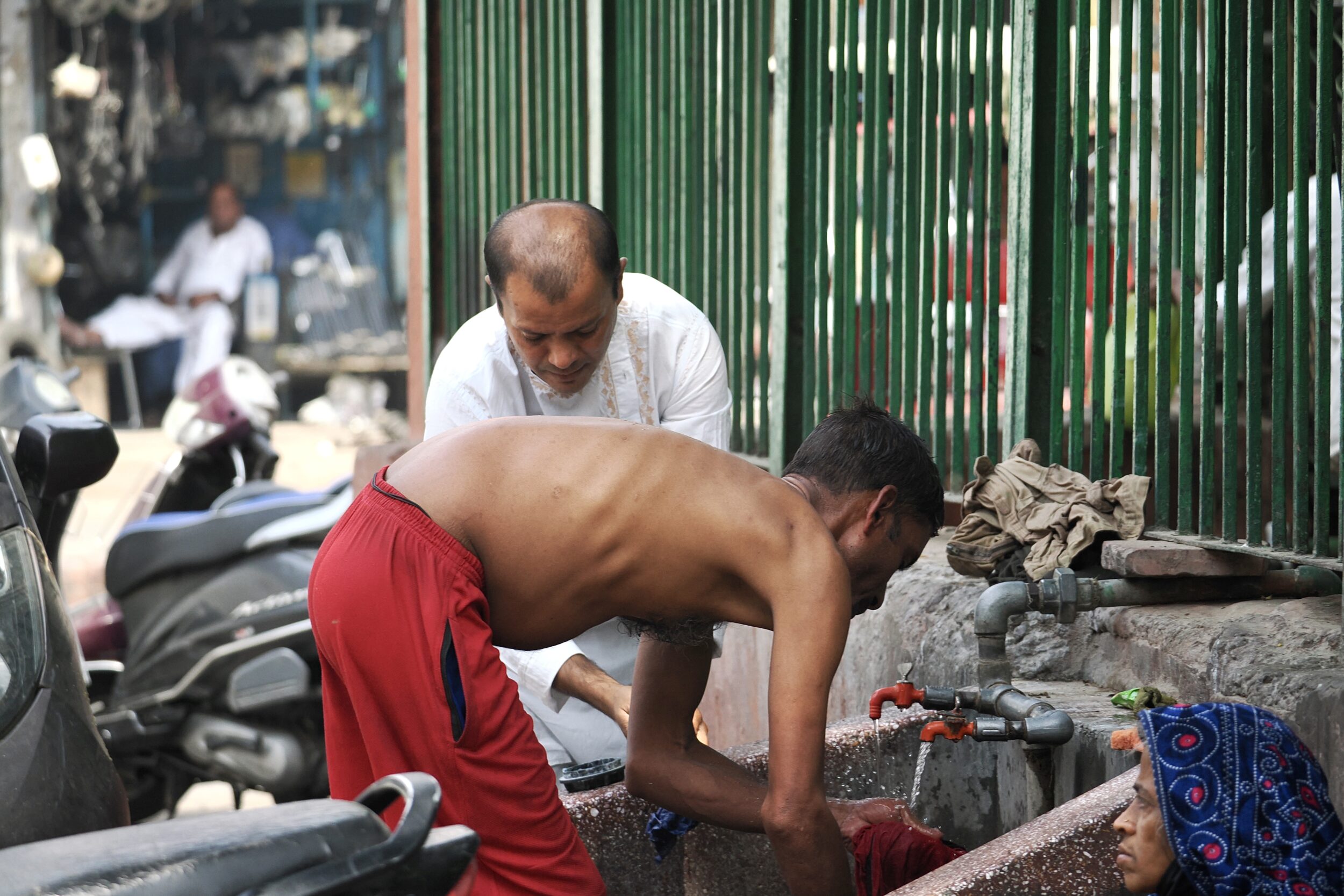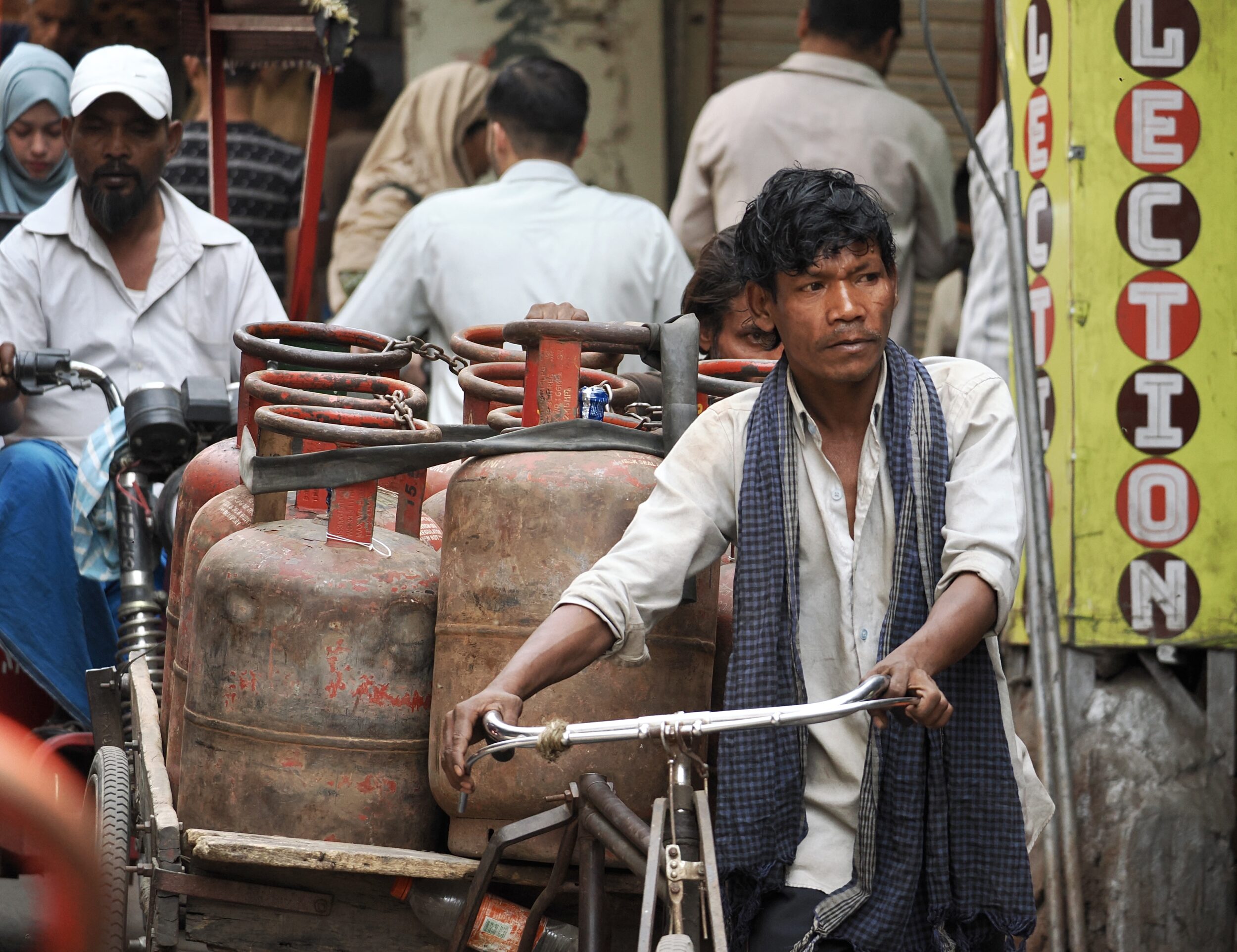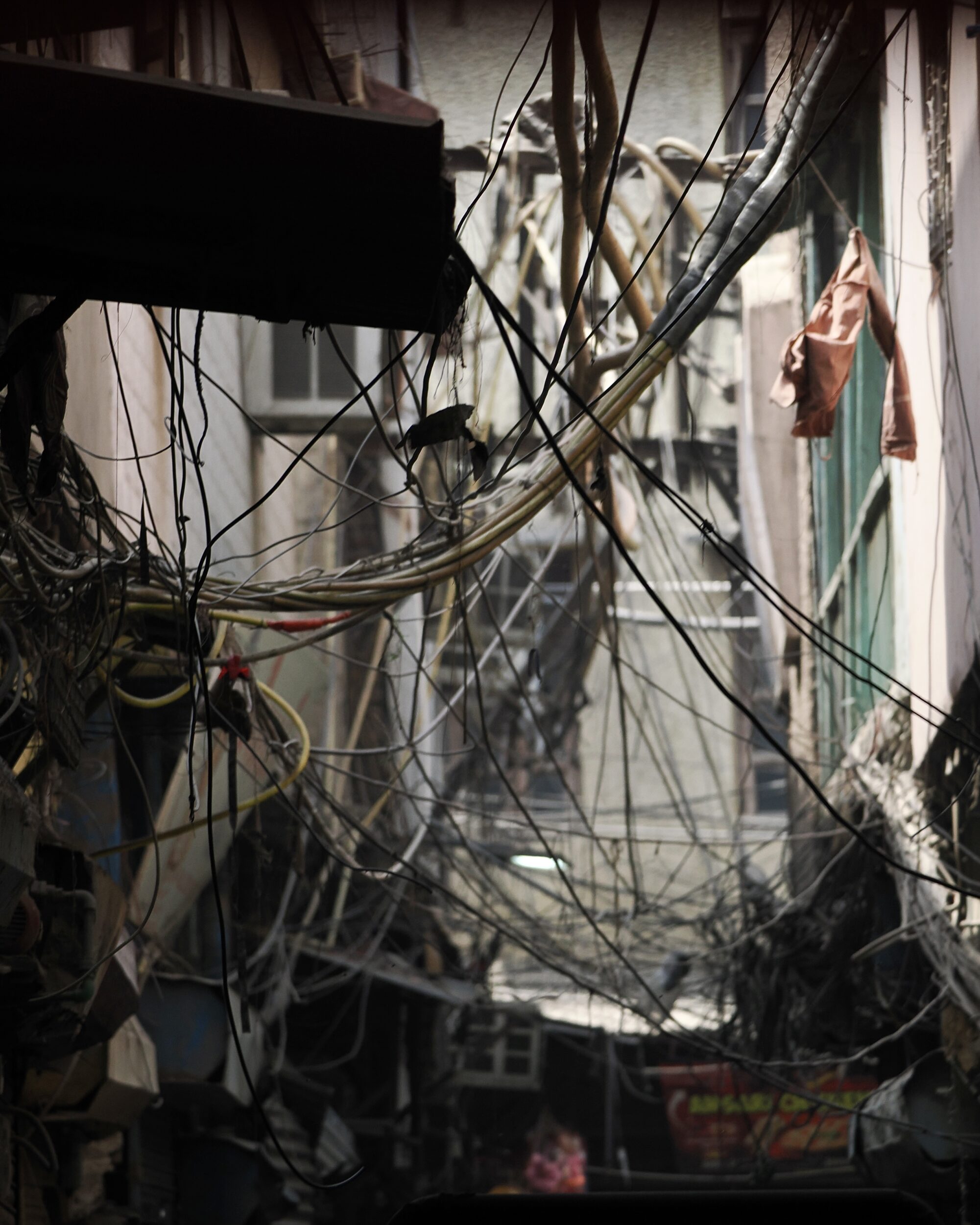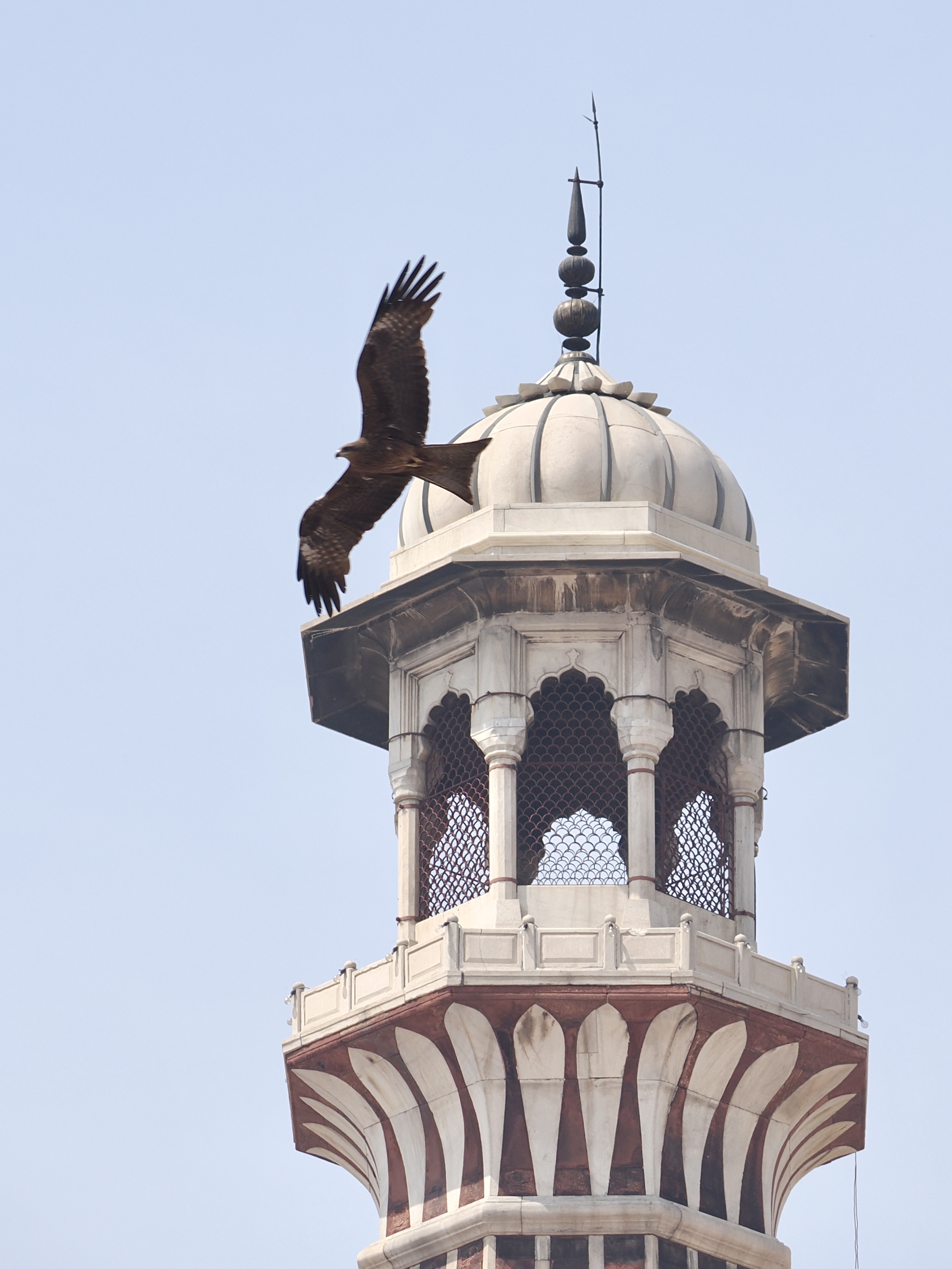Less than half an hour after I took this series’ final photo, we were walking into a much more spacious, greener, and…
Comments closedTag: Delhi
A little more than four out of five of Delhi’s nearly 34 million residents are Hindus.
A little less than one in seven are Muslims.
In Old Delhi, however, Muslims are the “majority” population.
Old Delhi is ethnically and culturally very diverse.
So is India as a whole.
Neither India’s Hindu “majority” nor its Muslim “minority” – the largest of its various religiously-affiliated “minorities” – is “uniform” or “monolithic”.
Bigotry and prejudice – and their total absence – are evident in the actual behaviour of adherents of whatever “Faith”, as they are among agnostics and atheists.
Q: Knowing all those things, how do you “read” this post’s (unposed, entirely “candid”) photo, taken in a very busy street?
Comments closedSometimes, “what was going on” was perfectly obvious.
Some other times, it was not obvious.
Above and below are two such moments.
Strangely enough, the quieter, more introspective one involved the man who did have a hammer.
Comments closed
Residents of Old Delhi can do much – for some residents, I suspect, all – of their daily shopping without ever having to walk through a shop door.
A great deal of buying and selling is conducted on streets and footpaths, with no “showroom”, no elaborate “displays”, and no physical barriers between a customer’s hands and the goods on offer.
Testing/tasting the wares is easily accomplished.
Comments closed
When I first walked in Old Delhi, its were the most “happening” streets I had ever experienced
32 years later that remains true.
(In the interim, I have visited a number of “megacities”, including the biggest one)
In 1992 I thought, “90 minutes in Old Delhi would give an alert writer enough characters, events, and wildly divergent circumstances to populate an ‘epic’ novel”.
In 2024 that is still true.
However, an alert visitor would not see and hear only crowds, commotion, conflict, conversation and commerce.
On Old Delhi’s streets one can also see a resident enjoy a moment of solitary, quiet contemplation.
Comments closed
As Charlie Rich most famously sang – in 1973 – no one knows what goes on behind closed doors.
In 2024, even far away from Nashville, those words still hold true.
However, collectively, Old Delhi’s residents’ live a much greater portion of their lives “in the open air/out on the streets” than do people in Nashville…or any “Western” city.
Comments closed
Its umpteen tangled kilometres of visible wiring notwithstanding, Old Delhi is not “all-electric”.
Gas delivery is also “above ground”, highly visible.
Comments closed
Old Delhi’s “wiring” has to be seen to be believed.
Externally, everything electrical is “above ground”, rather than “above board”; electrical connections are “highly informal”.
The “regulatory hand” is nowhere apparent.
This post’s images were both taken from “our” rickshaw; the first looks left, into a lane, the one below looks straight ahead.
Comments closed
Old Delhi is assuredly one of the world’s busiest, noisiest and most crowded urban places.
All that notwithstanding, some people choose to sleep on its footpaths and doorsteps…or they simply have no other readily-available resting-place.
Tourists are highly likely to be overwhelmed – or highly stimulated – by the sheer volume (in more than one sense) of human activity in Old Delhi.
However, at least some local residents appear to be utterly at ease, relaxed and unhurried.
Comments closed
Q: who usually rules the skies over the Indian subcontinent’s megacities?
A: Milvus migrans – black kites.
One of the world’s most abundant raptor species (possibly, the most abundant) has proved very adept at taking advantage of the “rubbish” discarded by urban humans.
If one is almost anywhere within a big Indian city, one needs no bird-watching expertise to see black kites; simply look up, and there they are!
”Holy” places are no exception…
Comments closed